Supernatural in Contemporary Society and Pop Culture
Editor’s Note: We are excited to share these historical and cultural insights on Supernatural from videographer and The Winchester Family Business fan, Giuila Rodilossi! A transcript of her narration follows the video. – Nightsky
Supernatural success and longevity is strongly tied with its use of popular culture references and a constant dialogue about and within contemporary society and cultural products. This allows the series to set a specific tone which can turn from dramatic to humoristic, but also helps in bringing together fiction and reality here by establishing the contemporary feature of the show.
CASTIEL “I don’t understand that reference”
INTRODUCTION
Supernatural at its roots has been developed in a specific point in time that frames it, as what many scholars define as post 9/11 popular culture. At the beginning Supernatural made ample use of American folklore and urban legends, packaging and presenting each episode as the horror movie of the week. The aim was to develop story lines which were easily recognizable and familiar, or either way, easily researchable. The theme of the show and its narrative arc quickly adapted to a more apocalyptic scenario, utilizing the latent discourse of good versus evil. If we consider that Supernatural started airing only four years after 9/11, its development can be seen as a dark and fantasized representation of post 9/11 American society in a constant fight against foreign and threatening forces. The creator, Eric Kripke has partly confirmed this reading by claiming that the allegorical status of the show is “as relevant today as when they were originally told because if there is any cultural zeitgeist at the moment, [it] is that we’re living in the age of anxiety”.
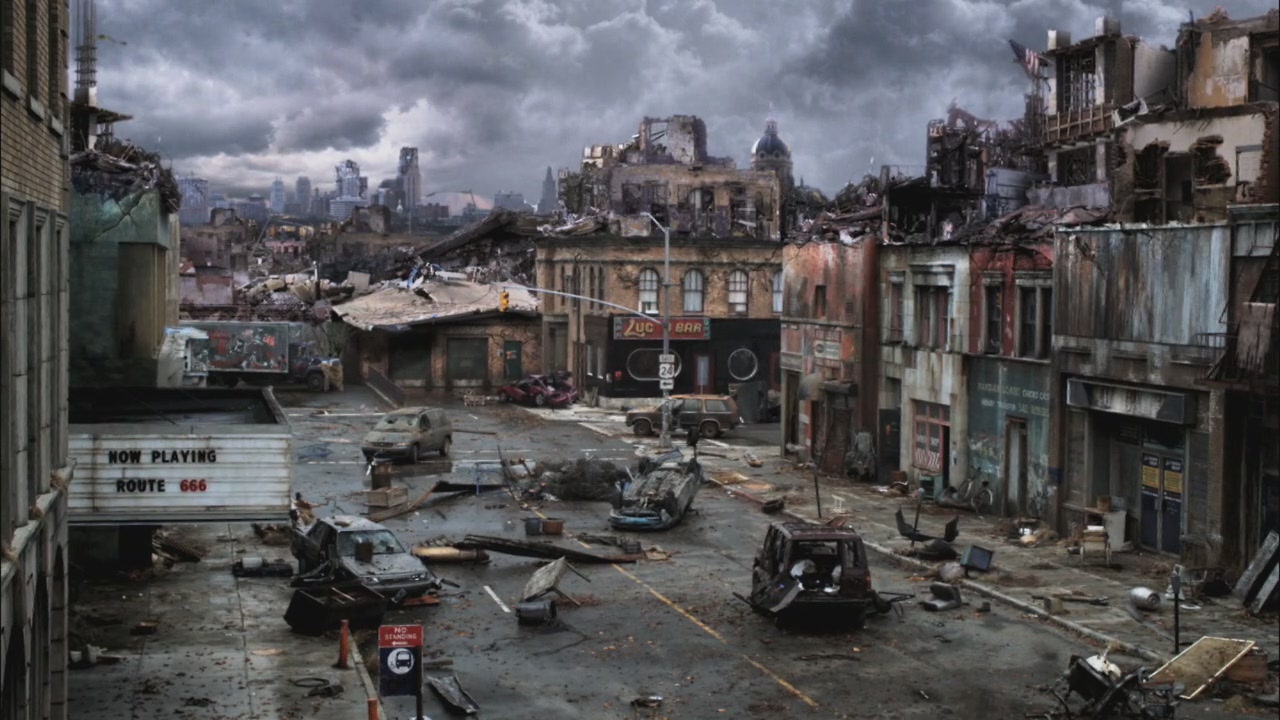
The rise of 9/11 popular culture is evident in the increased development of dystopian scenarios and post apocalyptic as well as supernatural themed shows and movies. Since 2002 the release of stories about destroyed world societies and political systems after some sort of grand event symbolically analogous to 9/11, or about otherworldly creatures, is very obvious even for those fictional works aimed at a younger audience. So Supernatural started by placing itself in this specific contemporary framework and reinforced the latter by engaging with pop culture products, media texts and even its fans. From undertones to one-liners, the presence of popular culture in Supernatural has ranged from hilariously obvious – to subtle.
ANNOUNCER “Doctor Kripke to room 237 code blue”
The pilot introduces these elements straight away. Even the naming of the two brothers Sam and Dean [is] inspired by the characters of Dean Moriarty and Sal Paradise of Jack Kerouac’s On The Road, the famous book which is considered to be representative of the American counterculture movement of the 40s and 50s. In the book, the story follows the duo’s cross-country travels in the never-ending search for something illusory.
Dean and Sam are also instantly framed as opposed to another famous TV family just to make us know what they’re not about.
FRIEND “How does it feel to be the golden boy of your family?”
SAM “Oh they don’t know”
FRIEND “Oh no, I would be gloating! Why not?”
SAM “Because we are not exactly the Brady’s”
The brothers also continually use fake names in each new case, which are usually references to famous pop figures.
AGENT “Agent Spears and Aguilera, FBI.”
The use of pop-culture references in media is not particularly original per se, however the ways in which these references are used are meant to cause different reactions in the viewers for that specific media text. For example Gilmore Girls, a show which makes constant use of references, does so as a way to highlight the closeness of the two main characters, Lorelai and Rory.
LORELAI “You know daughter, there’s nothing more satisfying than washing windows – oh no”.
RORI “What? Did I miss a spot?”
LORELAI “No, I just had an impure thought about your father, Alex. Funny – I don’t know why I had it. It isn’t the 2nd Saturday of the month”.
RORI “Hey, I heard you had an impure thought about me”.
LORELAI “I must now sublimate all my impure thoughts by going into the kitchen and making an endless string of perfect casseroles”
In Big Bang Theory, instead, the visual references especially that they use (by wearing specific t-shirts or playing specific games) are a quick and fast way to make [their] audience understand immediately that these characters are part of a specific group, and therefore this contributes to a sense of affinity with similar individuals that watch the show. Often in historical shows or in series that are portrayed in a different time frame, the use of references, even as subtle as a character watching TV, is used as a way to define and give credibility to the time the show is taking place in. We know that these events really happened so the shows automatically create a realistic historical past. Different again in the use of these references, for example, is The Simpsons, which utilizes them as a way to elicit humor and most often than not to satirize certain aspects of our society or behaviors or beliefs.
Supernatural is quite different in its use of popular culture references, intertextuality and metafiction.
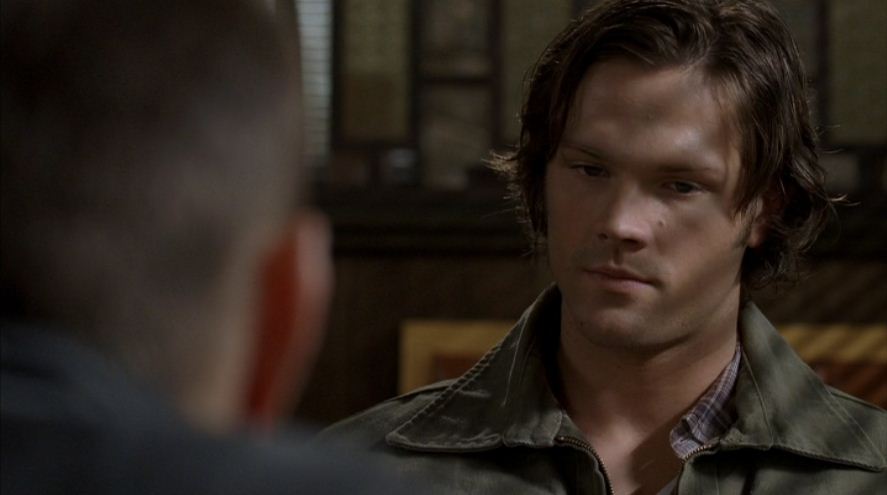
1: These are used as key tools to set the mood –
DEAN “Calm down”
SAM “Don’t tell me to calm down! I can’t calm down. I can’t. Because…”
DEAN “Because what?”
SAM “Because you die, today, Dean”.
DEAN “I’m not gonna die. Not today”.
SAM “Twice now I’ve watched you die, and I can’t— I won’t do it again, okay?”
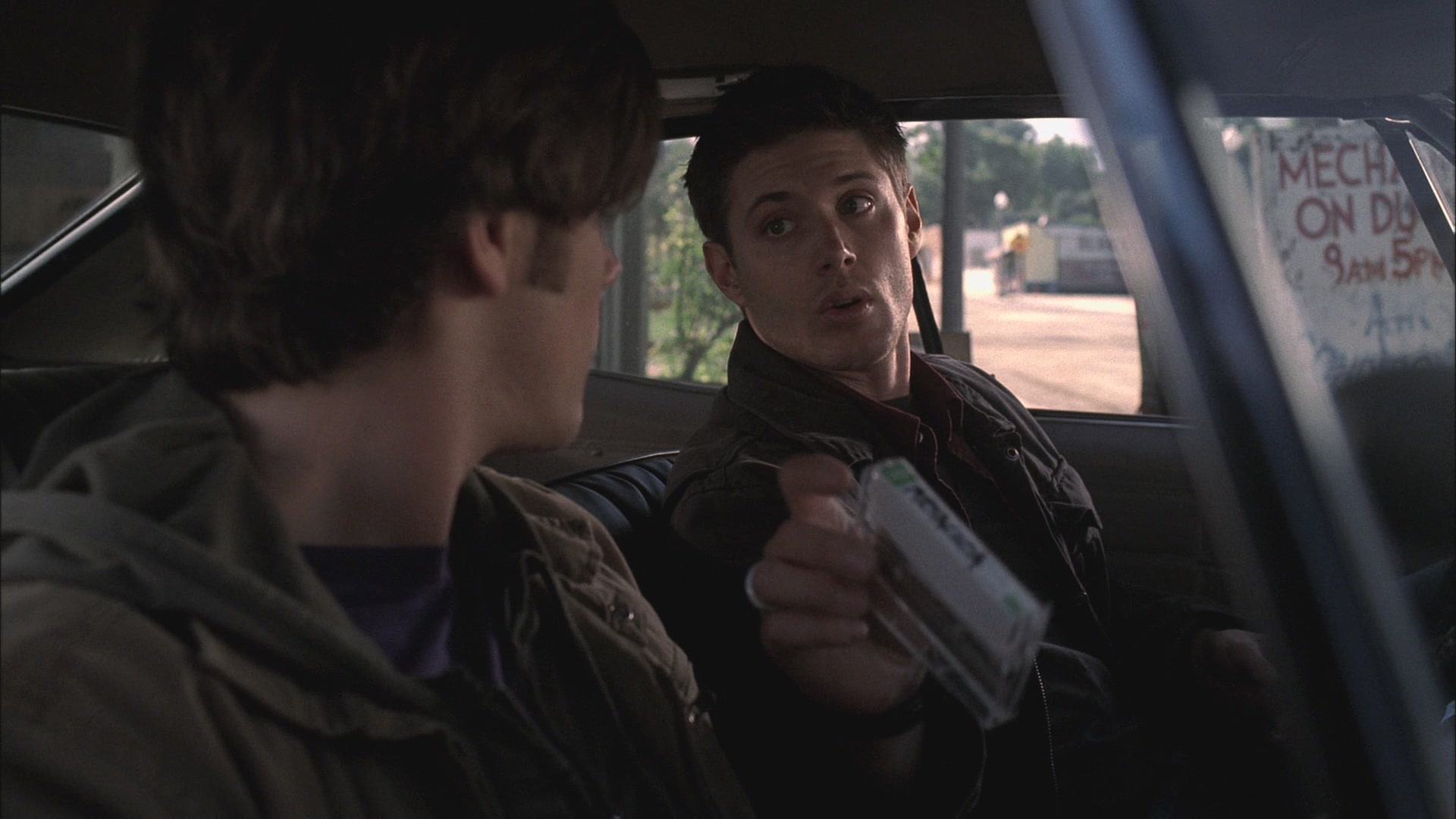
2: Reinforce characters identities –
SAM “Black Sabbath? Motorhead? Metallica? It’s the greatest hits of mullet rock”.
DEAN “House rules, Sammy. Driver picks the music, shotgun shuts his cake hole”
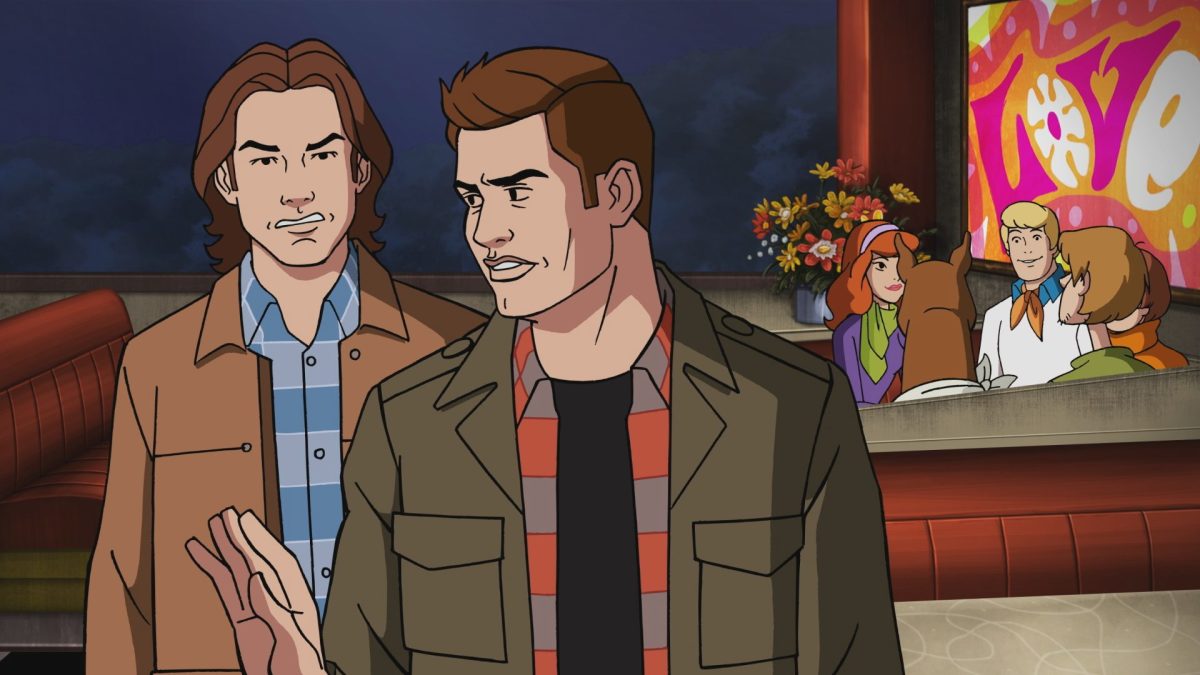
3: Intensify the relationship with its audience
DEAN “That’s the freaking Scooby gang!”
SAM “Great, so we are stuck in a cartoon with a talking dog.”
DEAN “Not just any talking dog, the talking dog!”
and 4: Prove the show’s cultural relevance.
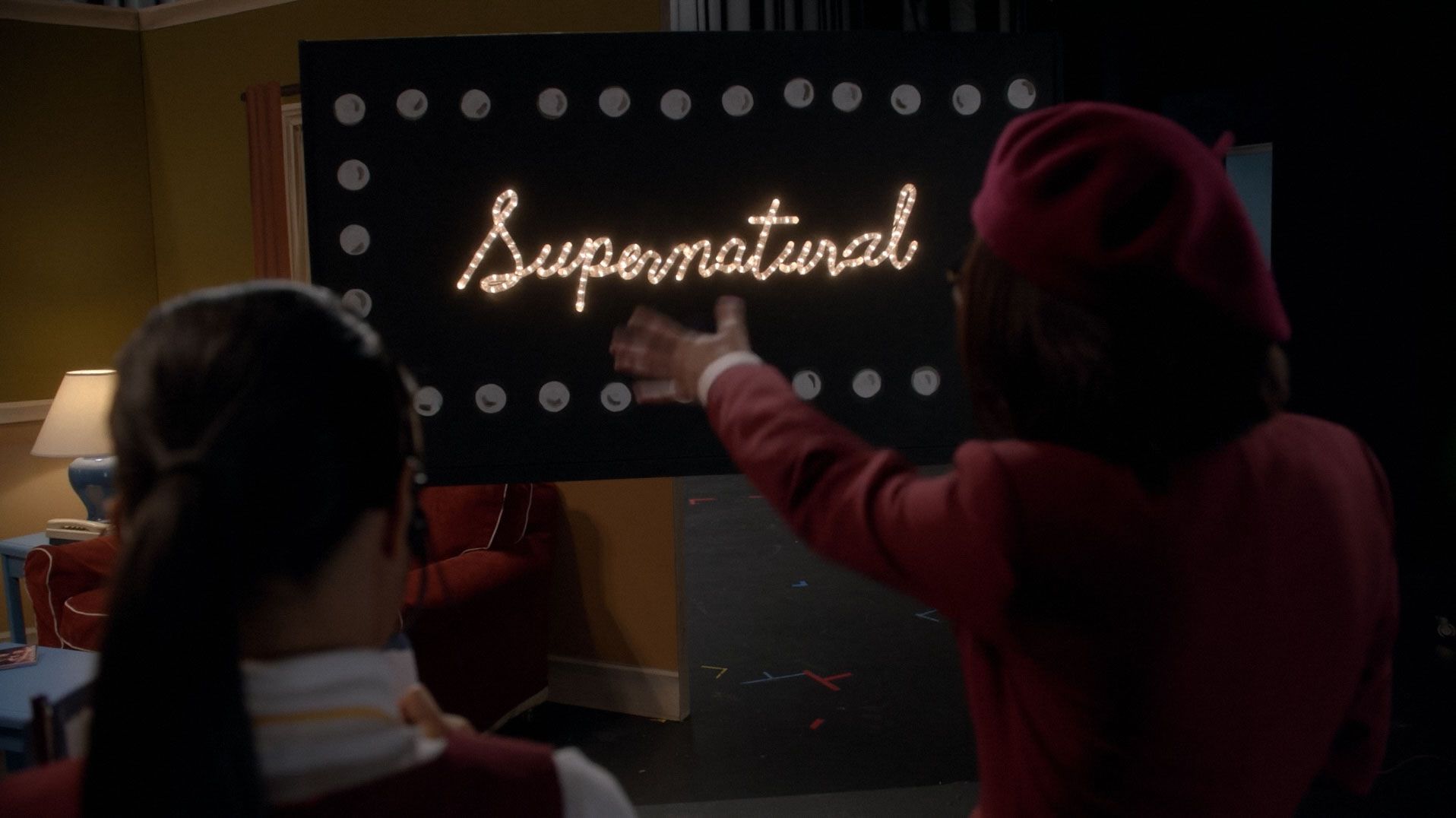
Let’s talk about this audience relationship because fans have had a huge role in the success and development of Supernatural and so the creators have decided to give some fanservice. One of the most meta episodes which focuses on fans and their creations in relation to Supernatural is the one called, not so literally, ‘Fanfiction’. In short, Sam and Dean find themselves in an all girls school play about Supernatural. The episode focuses on the fans’ reading of the show, giving visibility to them but also to the series itself, acknowledging its place as a cult TV show.
MARIE “I just- I couldn’t leave it the way that it was! I mean, Dean not hunting anymore, living with Lisa?! Sam, somehow back from Hell, but not with Dean?! So, I wrote my own ending”
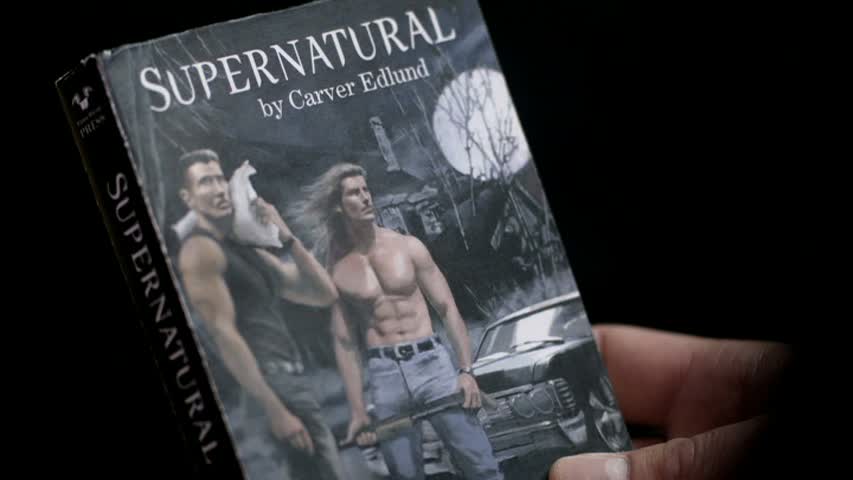
Another example which can be seen both as a way to reward fans and at the same time as a self-referential episode [is] in season four where the Winchesters find out that their entire life has been written out in the form of book series by Chuck Shurley. Fans, specifically those who helped make the show a success through their online activities, are recognized by the brothers, making the fandom itself a part of the plot.
DEAN “There’s Sam girls and Dean girls, and what’s a slash fan?”
SAM “As in, Sam slash Dean, together”
Yet, while this recognition might feel particularly thrilling or empowering to some fans, it should be noted that their cultural power is very limited. The recognition of fan behavior is not necessarily an invitation or an agreement to their participation but rather simply an acknowledgement that the creators of the show know what the fandom is doing/saying.
MARIE “Although, we do explore the nature of Destiel in act two”.
DEAN “Sorry, what?”
MARIE “Oh, it’s just subtext! But, then again, you know, you can’t spell subtext without…. s-e-x”
In the Supernatural episode mentioned before [“The Monster at the End of this Book”], Chuck states that there is only one possibility for him to be able to know and write about all of their lives. He’s God.
CHUCK “I write things and then they come to life? Yeah, no, I’m definitely a God. A cruel, cruel, capricious God”
Sure Chuck also makes fun of his own writing in relation to some episodes which Eric Kripke himself has said to be disappointed [in]. Yet he laughably still positions himself as a God and fans as his followers. It’s pretty easy to decide what to be self-ironic about when you’re the one guiding said representation because you’re in a position of power as the creator of the series whereas the fans can’t decide, are not in control, of how they are depicted in those episodes.
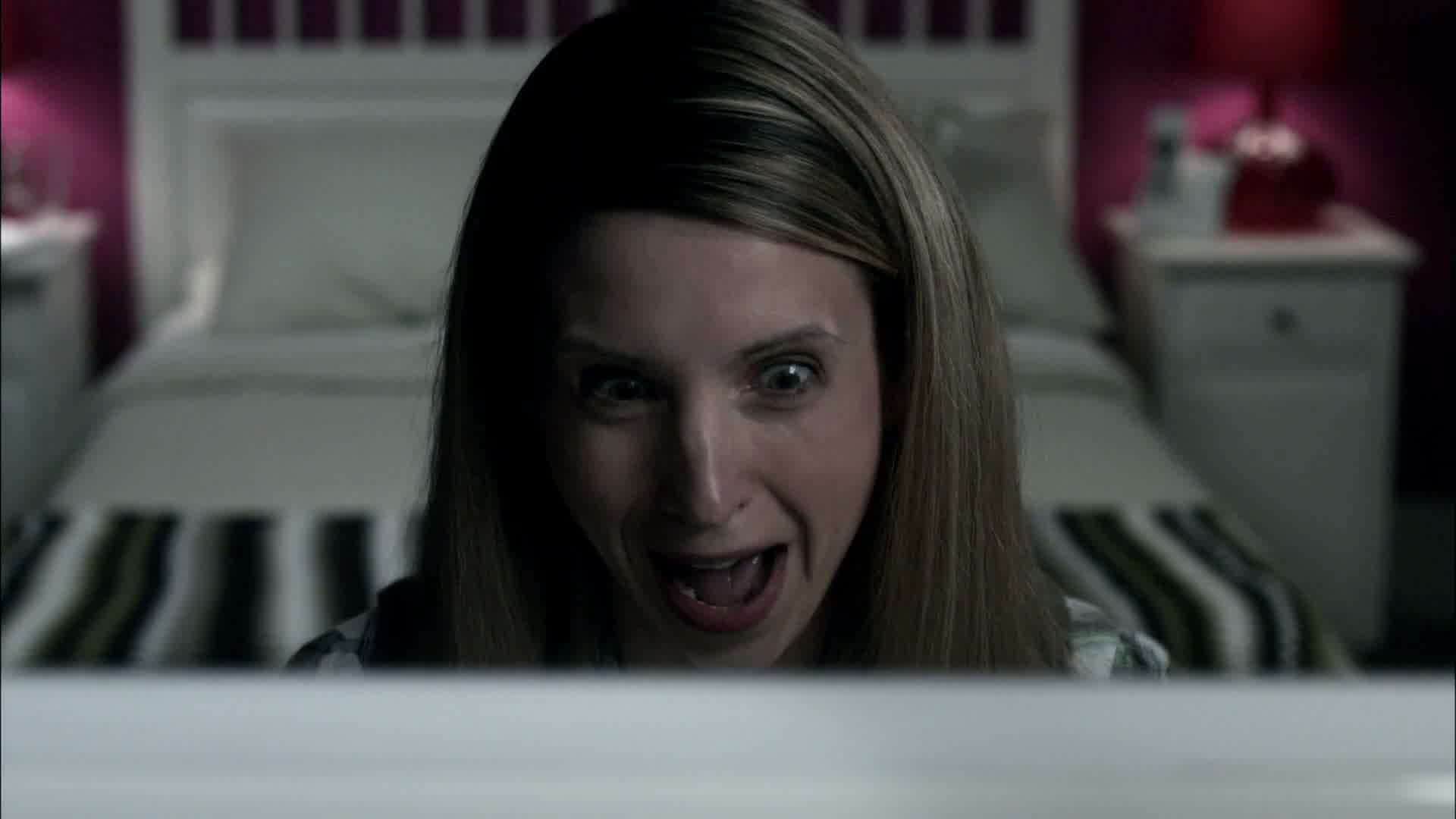
BECKY “And then Sam touched—” No. “—caressed Dean’s clavicle. ‘This is wrong,’ said Dean. ‘Then I don’t want to be right,’ replied Sam, in a husky voice”
You might still like how you’re represented and find the episode funny yet it is interesting to note how “The Monster at the End of this Book” can be seen as a friendly reminder of who’s in control of the production of Supernatural.
PUBLISHER “Okay. His name’s Chuck Shurley. And he’s a genius, so don’t piss him off”
That’s it for today and for Supernatural and how it uses popular culture. If you liked this video, make sure to subscribe so you can see more videos like this one and I’ll see you next time.
Please welcome Giulia, and share your thoughts on her insights on Supernatural in the comments below! You can follow Giulia on Twitter @GiuliaRodilossi


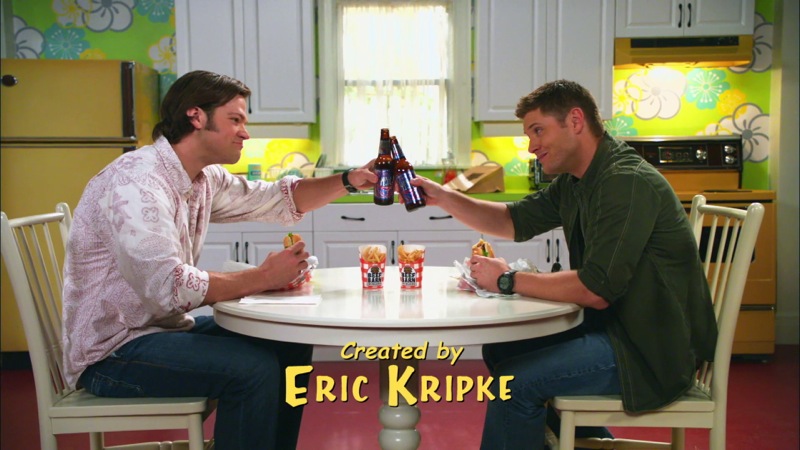
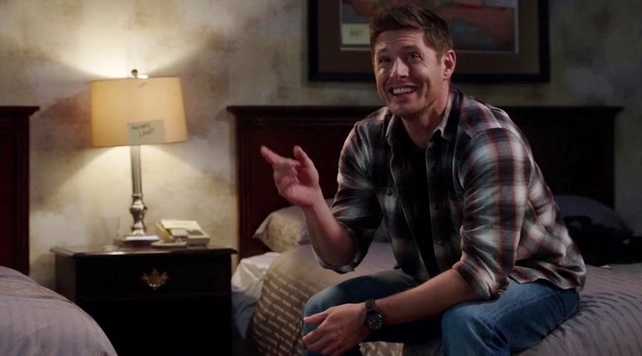
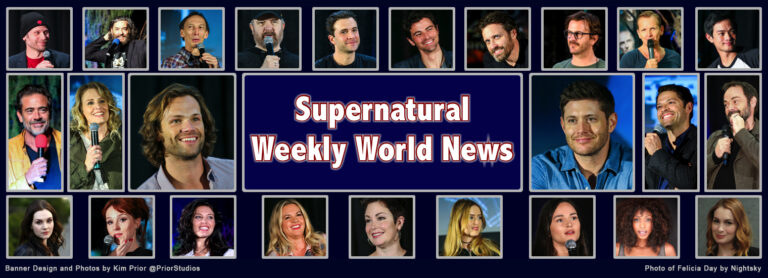
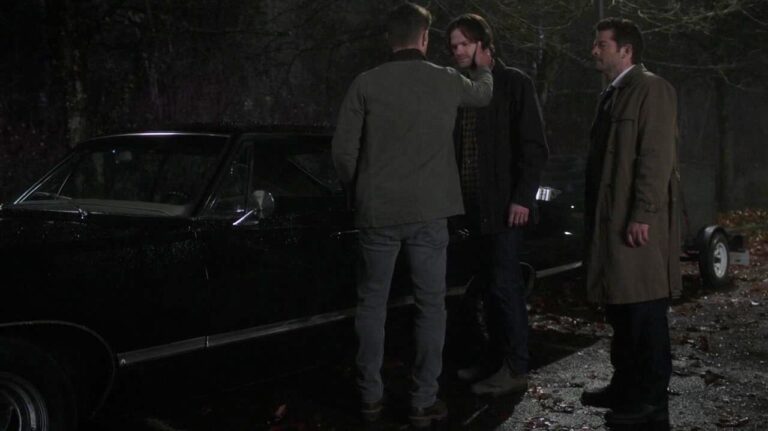
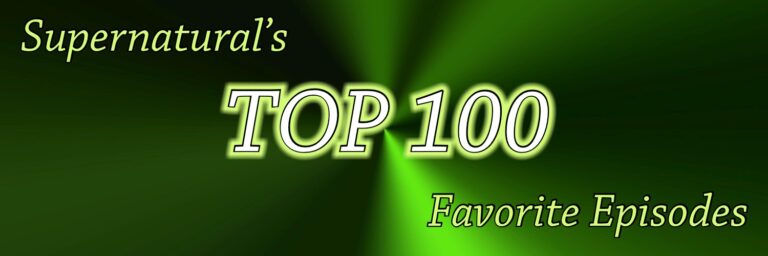
Leave a Reply